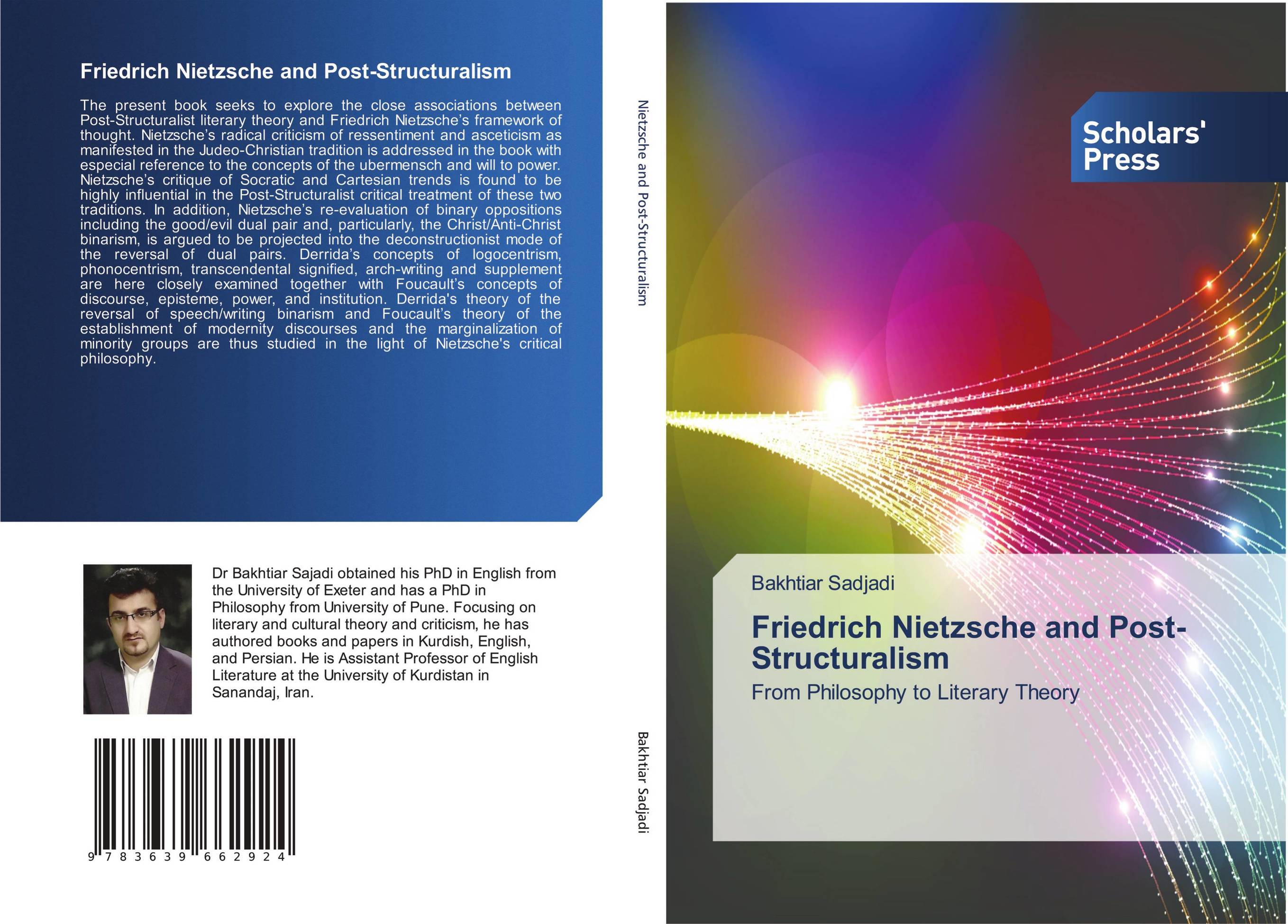| Поиск по каталогу |
|
(строгое соответствие)
|
- Профессиональная
- Научно-популярная
- Художественная
- Публицистика
- Детская
- Искусство
- Хобби, семья, дом
- Спорт
- Путеводители
- Блокноты, тетради, открытки
Friedrich Nietzsche and Post-Structuralism. From Philosophy to Literary Theory

В наличии
| Местонахождение: Алматы | Состояние экземпляра: новый |

Бумажная
версия
версия
Автор: Bakhtiar Sadjadi
ISBN: 9783639662924
Год издания: 2014
Формат книги: 60×90/16 (145×215 мм)
Количество страниц: 176
Издательство: Scholars' Press
Цена: 46688 тг
Положить в корзину
| Способы доставки в город Алматы * комплектация (срок до отгрузки) не более 2 рабочих дней |
| Самовывоз из города Алматы (пункты самовывоза партнёра CDEK) |
| Курьерская доставка CDEK из города Москва |
| Доставка Почтой России из города Москва |
Аннотация: The present book seeks to explore the close associations between Post-Structuralist literary theory and Friedrich Nietzsche’s framework of thought. Nietzsche’s radical criticism of ressentiment and asceticism as manifested in the Judeo-Christian tradition is addressed in the book with especial reference to the concepts of the ubermensch and will to power. Nietzsche’s critique of Socratic and Cartesian trends is found to be highly influential in the Post-Structuralist critical treatment of these two traditions. In addition, Nietzsche’s re-evaluation of binary oppositions including the good/evil dual pair and, particularly, the Christ/Anti-Christ binarism, is argued to be projected into the deconstructionist mode of the reversal of dual pairs. Derrida’s concepts of logocentrism, phonocentrism, transcendental signified, arch-writing and supplement are here closely examined together with Foucault’s concepts of discourse, episteme, power, and institution. Derrida's theory of the reversal of speech/writing binarism and Foucault’s theory of the establishment of modernity discourses and the marginalization of minority groups are thus studied in the light of Nietzsche's critical philosophy.
Ключевые слова: discourse, Logocentrism, phonocentrism, transcendental signified, binarism, episteme, Institution



